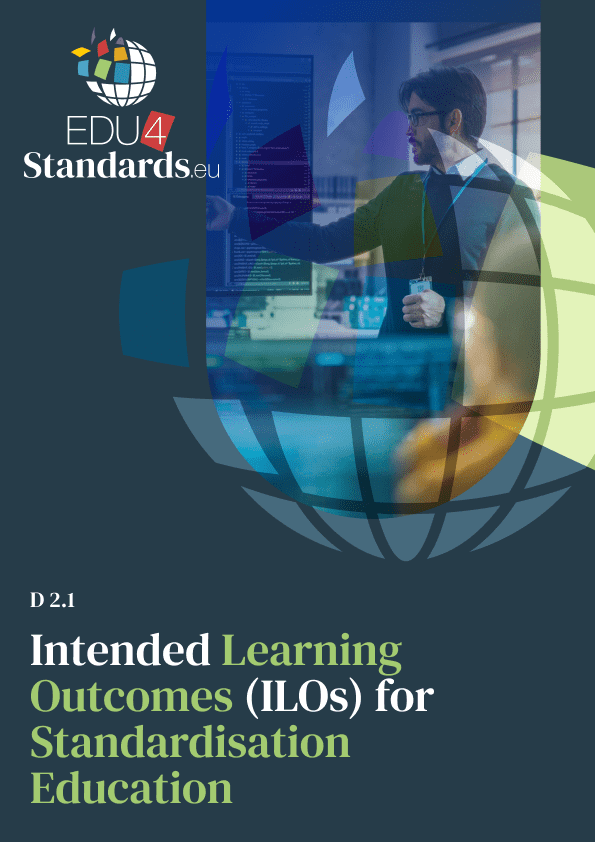This deliverable is prepared as part of the EDU4Standards.eu project. A value-based Intended Learning Outcomes (ILOs) framework for standardisation education, also called EDU4Standards.eu value-based ILOs framework, is developed. This framework is an important part of the development of the Innovative Teaching Concept for Standardisation (ITCoS).
It addresses the issue of fragmented standardisation education by providing a comprehensive structure and guidance on ILOs and levels of qualification and demonstrating how values can be integrated into standardisation education.
The development of the ILOs framework is based on an analysis of standardisation documents, a literature review on values and expert talks. It builds on the European Qualifications Framework for Lifelong Learning (EQF), the International Standard Classification of Education (ISCED) and Bloom’s taxonomy as well as considers WTO’s principles and the IWAs 30. The framework distinguishes nine levels of qualification that are matched with nine levels of formal education, ranging from Level 0 (Early Childhood Education) and extending up to Level 8 (Doctoral level), for which ILOs are defined. At the same me, the framework covers levels of qualifications attained outside of the formal educational system.
In defining the ILOs, existing work on standardisation education was consulted and complemented with a value-based approach to explicitly include value considerations at each level. The EDU4Standards.eu value-based ILOs framework consists of three parts: a general value-based ILOs framework for standardisation education, an ILOs framework focusing explicitly on values, i.e. European values, and an ILOs framework incorporating green, digital and gender skills.
The EDU4Standards.eu value-based ILOs framework should assist lecturers on standardisation in designing their value-based standardisation courses. It should also be used as guidance to support the design and development of value-based standardisation curricula to be integrated systematically in educational systems and national education strategies. The primary stakeholders of the framework are lecturers and learners in standardisation, but other stakeholders such as standardisation bodies, industry, NGOs and research organisations, SMEs and citizens, can also benefit from it.
